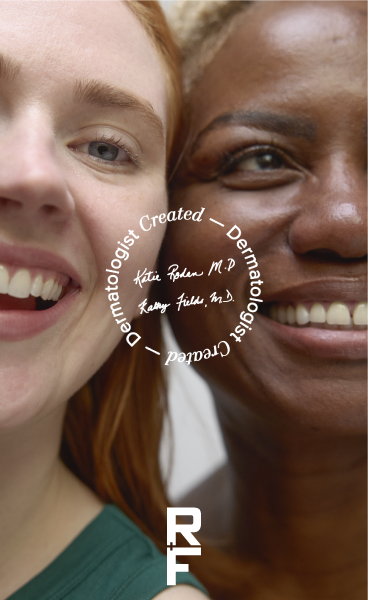Buy a Skincare Regimen, choose a free eye cream + free shipping with your order. Shop Now
Sign in

YOUR SESSION IS ABOUT TO EXPIRE:
Confirmation
WHAT IS CRP & HOW DOES CRP WORK?
For more information, view the CRP Terms & Conditions.
WHAT IS CRP & HOW DOES CRP WORK?
For more information, view the CRP Terms & Conditions.
How do you get rid of teenage acne?
The best way to get rid of teenage acne is to follow a daily skincare routine that includes gentle cleansing, exfoliating, and moisturizing. It's important to use products that are specifically designed for teen skin, such as the Rodan + Fields SPOTLESS Regimen. This two-step skincare routine for teens contains benzoyl peroxide to reduce the levels of acne-causing bacteria.
It's also wise to avoid picking or scrubbing the skin as this can exacerbate acne and lead to scarring. In addition, it may be helpful to reduce stress levels, exercise regularly, and get enough sleep in order to keep hormones in balance and reduce the likelihood of breakouts. In some cases, medical interventions such as prescription medications may be necessary to control teenage acne. It's important to talk to a dermatologist or qualified skincare professional about the best approach for your individual skin type.
What causes teenage acne?
People of all ages can get acne, but acne is especially common in teenagers. This is primarily because of hormonal factors. During puberty, the body's hormone production increases significantly. This can lead to an overproduction of oil on the skin, which can clog pores and cause breakouts.
Additionally, stress levels tend to be higher during teenage years, which can make acne worse. Poor skincare practices can also exacerbate existing acne, such as not removing makeup before bed or not using a gentle cleanser.
What causes cystic acne?
Cystic acne is an inflammatory form of acne that's characterized by pus-filled lumps that are located deep under the skin. These breakouts are often larger and redder than typical acne, and they may hurt or itch. This type of acne occurs when pores get clogged with dead skin cells and bacteria, resulting in a deep-seated infection.
The exact cause of cystic acne is unknown, but it's often associated with hormonal fluctuations, particularly those involving androgens like testosterone. Certain medications and skin products, along with too-tight clothing, sweating, and high humidity, may also contribute to cystic acne.
When does acne start?
Acne can start as early as age eight, but it more commonly begins between the ages of 10 and 13. The onset of acne generally aligns with the beginning of puberty, when hormone levels are rapidly rising and oil production is increasing.
Some people don't start experiencing acne until adulthood. This is a less common occurrence, but it can happen as a result of fluctuating hormones due to pregnancy or other environmental factors. It may also be triggered for the first time in adulthood due to a new skincare product or medication.
Why do teens get acne?
Teens can get acne for the same reasons as adults, including lifestyle factors, stress, and as a side effect of certain medications. However, hormonal factors are often the culprit for teenage acne.
During puberty, hormones such as testosterone and estrogen increase significantly. These hormone levels are often higher in teens than in adults, which can lead to an increase in oil production and thus clogged pores. This is why teen acne tends to affect the areas where the most oil glands are located, such as the chin, jawline, chest, and back.
Is acne normal?
Yes, acne is a very normal condition that affects people of all ages, genders, and ethnicities. In fact, it is estimated that 85% of teenagers and young adults will experience acne at some point. The prevalence starts to drop as people hit their late 20s and 30s, but a sizable portion of older adults continue to experience acne.
It's important to remember that acne is not a sign of poor hygiene or laziness — it is a natural physiological process that affects millions of people all over the world. The right combination of lifestyle habits and skincare products can improve the appearance of acne and help reduce its severity, but there's no shame in having acne if it continues despite these interventions.



